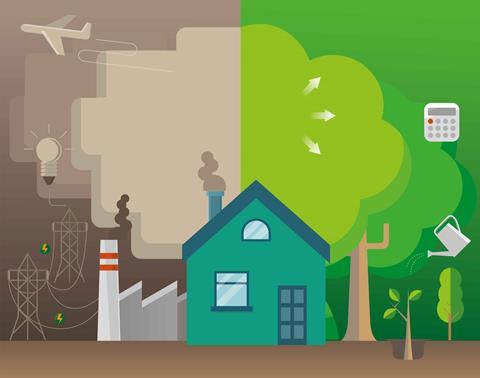The Future Homes Hub investigated how we can build zero carbon ready homes at the scale needed to guide the Government as it looks to implement its 2025 Future Homes Standard

By 2025, new homes will be required to reduce carbon emissions by at least 75%. They will also be expected to be net zero ready through their use of lower-carbon heating and high fabric standards.
Working with experts from across the housebuilding industry, the Future Homes Hub investigated how the industry can build zero carbon ready homes at the scale needed as the Government looks to implement its 2025 Future Homes Standard (FHS).
The findings have been published in a report, ‘Ready for Zero: Evidence to inform the 2025 Future Homes Standard - Task Group Report’, that collectively looked at the implications of:
- Level of insulation and fabric efficiency
- Reduced air permeability and different ventilation provision
- Double or triple glazed windows
- Energy systems for space heating and hot water
- Increased use of renewables
The report details how different specifications perform in terms of consumer, design, cost, planning, fabric, ventilation, heating, skills, manufacturing, maintenance, grid and metrics.
It then considers the factors the Government will need to take into account when refining the Future Homes Standard, such as the impact on UK electricity demand and household bills, build costs, and the pace at which we can adjust to new building methods and supply and install new technologies.
Recommendations include ensuring the Government is working alongside the housebuilding industry to carry out the Future Homes Standard, and that important updates are clearly communicated.
Additionally, the report highlights the need for a specific focus on small builders who may struggle more to adapt to any new policies.
Considering how site layouts might accommodate homes designed to the new standard, and providing workforces with the additional skills required to build them, were also key points identified.
Made up of 26 recommendations in total, the findings will provide evidence to the Department for Levelling Up, Housing and Communities.
David Adams, strategic adviser for The Future Homes Hub and co-chair of the report said: “The techniques and technologies that are required to radically lower carbon emissions in houses already exist, so what we needed to do was to identify how, and if, a scale up could be addressed, working through a variety of different scenarios. While not offering advice, we wanted the report to detail different paths that could be chosen, and their various implications for industry, Government and, importantly, consumers.”











No comments yet